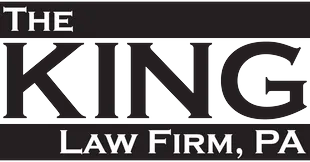A Close Look At Powers Of Attorney In Florida
Although it is not an estate planning tool, power of attorney (POA) designation is very commonly prepared in the context of estate planning. POA is a powerful tool to help you plan for “incapacity,” which is losing the ability to make or communicate decisions for yourself (typically due to cognitive decline or a serious medical issue like a coma). The power of attorney document grants authority to someone of your choosing to act as your agent, or decision-maker, if you lose capacity. You can limit the agent’s authority to make only certain decisions, and the POA designation ends when you either regain capacity or pass away.
Because of the importance of POA designations, it is critical to work with a skilled lawyer like ours at The King Firm, PA. Our estate law attorneys are knowledgeable and insightful about the legal and personal issues facing our clients in Tampa Bay and St. Petersburg, and they will guide you throughout the process of determining who might best serve in the role of power of attorney and the authority you can grant them.
Why You May Need A Power Of Attorney
Designating a power of attorney is your opportunity to select the person you want to make decisions for you. It’s important to establish POA before the need arises – by then, it will likely be too late. If you were to lose capacity without designating POA, your loved ones would need to initiate a guardianship proceeding. This is an often costly and stressful process wherein a judge would grant decision-making authority to someone, and there are no guarantees that the person is someone you would have chosen for yourself.
There are numerous types of powers of attorney in Florida, including:
- Medical power of attorney: This determines who can make medical decisions for you – from minor choices of treatment to major decisions about life support – when you are incapacitated. It is closely tied to your medical directives and is often called a health care proxy.
- Financial power of attorney: This document gives an individual the ability to make financial decisions for you. They can choose to sell your property or make decisions about how to pay for your debts.
- Special powers of attorney: You can draft documents granting limited authority for someone to act on your behalf in certain situations, such as at the bank or DMV. It’s important to note that you can grant powers of attorney for reasons other than incapacity, such as when you need someone to make a legal decision for you when you can’t be present yourself.
When you contact our firm, we will work with you to determine what type of power of attorney is right for your case, as well as talk you through what restrictions or limitations might be imposed on that power of attorney.
Power Of Attorney Is A Position Of Trust
The role of your designated power of attorney is to act in your best interest. Although this person has a great deal of authority to handle your care and financial well-being, they must do so with your best interest in mind. It is important that you choose someone who is of the highest level of trust and competence.
You establish power of attorney when you still have your faculties so that when and if you ever lose capacity, everything is already set up. You can’t give power of attorney once you have lost your faculties, and power of attorney is not a function of a will.
Although our lawyers cannot help you choose a person to designate, they can offer you guidance on what to consider when determining who should serve in the role of power of attorney. Once you’ve made a choice, they can then craft the proper documentation and give you the peace of mind of knowing that your power of attorney is in place.
Get A Free Consult From An Attorney You Can Trust
People across Florida put their faith in our lawyers because they are attentive to clients and care about their concerns. They respect our clients’ time and work efficiently to resolve any questions or requests. Call today to learn more about our firm at 888-712-4771 or send an email using this form.

